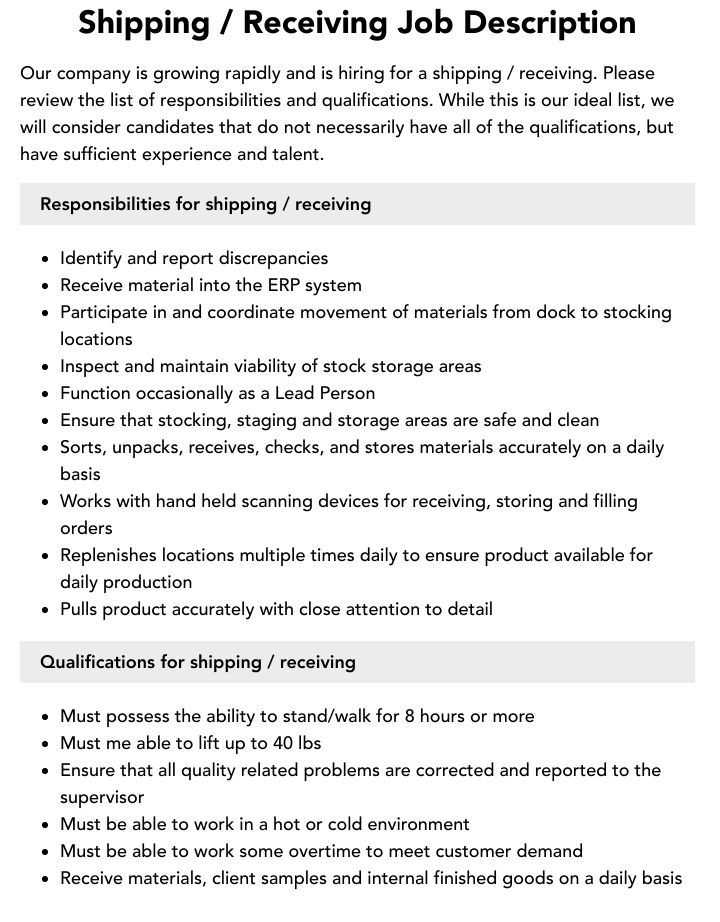
A train conductor is responsible for overseeing the safe operation of a train. They are in charge of the train’s crew, passengers, and cargo, and must ensure that the train arrives at its destination on time and without incident. Train conductors typically work for railroad companies and must have a thorough knowledge of railroad operating rules and procedures.
Train conductors play an important role in the safe and efficient operation of the railroad industry. They are responsible for ensuring that trains operate on time, safely, and in accordance with all applicable laws and regulations. Train conductors must be able to work independently and as part of a team, and must be able to make quick decisions in emergency situations. They must also be able to communicate effectively with train crews, passengers, and railroad personnel.
If you are interested in a career as a train conductor, there are a few things you should keep in mind. First, you will need to have a high school diploma or equivalent. Second, you will need to complete a training program that is approved by the Federal Railroad Administration. Third, you will need to pass a background check and drug test. Finally, you will need to be able to pass a physical exam.
1. Safety
Train conductors play a vital role in ensuring the safety of passengers and crew members on trains. They are responsible for overseeing the safe operation of the train, identifying and mitigating potential hazards, and responding to emergencies. To effectively fulfill this responsibility, train conductors must possess a comprehensive understanding of railroad safety regulations and operating procedures. They must also be able to make quick decisions and take appropriate actions in emergency situations.
- Risk Assessment and Hazard Identification: Train conductors are responsible for assessing risks and identifying potential hazards that may arise during train operations. They must be able to anticipate and identify potential problems, such as track defects, weather conditions, or equipment malfunctions, and take appropriate measures to mitigate these risks.
- Emergency Preparedness and Response: Train conductors must be prepared to respond to emergencies that may occur during train operations. They must be able to assess the situation, take appropriate actions to protect passengers and crew members, and coordinate with emergency responders if necessary.
- Compliance with Safety Regulations: Train conductors are responsible for ensuring that train operations are conducted in compliance with all applicable safety regulations. They must be familiar with and adhere to railroad safety rules and regulations, as well as company policies and procedures.
- Communication and Coordination: Train conductors must be able to communicate effectively with train crew members, passengers, and other railroad personnel to ensure the safe operation of the train. They must be able to provide clear instructions, relay important information, and coordinate actions during normal operations and emergency situations.
By fulfilling these responsibilities, train conductors help to ensure the safety of passengers and crew members on trains and contribute to the overall safety of the railroad industry.
2. Communication
Effective communication is essential for train conductors to perform their duties safely and efficiently. They must be able to communicate clearly and concisely with their crew members to ensure that everyone understands their roles and responsibilities. They must also be able to communicate effectively with passengers to provide information and assistance, and to respond to any concerns or questions.
- Clear and Concise Communication: Train conductors must be able to give clear and concise instructions and directions to their crew members and passengers. They must be able to communicate complex information in a way that is easy to understand, and they must be able to do so quickly and efficiently.
- Active Listening: Train conductors must be able to listen actively to their crew members and passengers. They must be able to understand what is being said, and they must be able to respond appropriately. They must also be able to identify and address any concerns or questions that are raised.
- Cultural Sensitivity: Train conductors must be able to communicate effectively with people from diverse cultural backgrounds. They must be aware of and respectful of cultural differences, and they must be able to adapt their communication style to meet the needs of their audience.
- Emergency Communication: Train conductors must be able to communicate effectively in emergency situations. They must be able to provide clear and concise instructions to their crew members and passengers, and they must be able to coordinate with emergency responders.
By developing strong communication skills, train conductors can improve safety, efficiency, and customer satisfaction. They can also build strong relationships with their crew members and passengers, which can make the workplace more enjoyable and productive.
3. Leadership
Leadership is an essential aspect of a train conductor’s job. Train conductors are responsible for the safety and well-being of their crew and passengers, and they must be able to make quick decisions in emergency situations. To be effective leaders, train conductors must possess a variety of skills, including:
- Communication: Train conductors must be able to communicate effectively with their crew and passengers. They must be able to give clear instructions and directions, and they must be able to listen to and understand the concerns of their crew and passengers.
- Decision-making: Train conductors must be able to make quick decisions in emergency situations. They must be able to assess the situation and make decisions that will protect the safety of their crew and passengers.
- Teamwork: Train conductors must be able to work effectively as part of a team. They must be able to motivate and inspire their crew to work together to achieve common goals.
- Problem-solving: Train conductors must be able to solve problems quickly and efficiently. They must be able to identify problems and develop solutions that will minimize the impact on the safety of their crew and passengers.
Train conductors who possess these leadership skills are able to create a safe and positive work environment for their crew and passengers. They are able to motivate and inspire their crew to work together as a team, and they are able to make quick decisions in emergency situations. These skills are essential for the safe and efficient operation of trains.
4. Knowledge
In the context of a train conductor job description, knowledge is a critical component that encompasses various facets essential for the safe and efficient operation of trains. These facets include:
- Railroad Operating Rules and Procedures: Train conductors must have a thorough understanding of railroad operating rules and procedures to ensure compliance and adherence to safety standards. This includes knowledge of train handling, signaling systems, track maintenance, and emergency protocols.
- Territory Familiarity: Train conductors must be familiar with the territory they are operating in, including track layouts, station locations, and potential hazards. This knowledge enables them to make informed decisions regarding train operations and respond appropriately to unforeseen circumstances.
- Hazard Identification and Response: Train conductors must be able to identify and respond to potential hazards that may arise during train operations. This includes recognizing track defects, weather conditions, equipment malfunctions, and other factors that could compromise safety.
- Continuous Learning: Train conductors must continuously update their knowledge and skills to stay abreast of changes in railroad operating rules, procedures, and technology. This ensures that they remain competent and capable of handling the evolving demands of the job.
By possessing a comprehensive knowledge base, train conductors can effectively manage train operations, navigate complex situations, and maintain a high level of safety for passengers and crew.
Frequently Asked Questions about Train Conductor Job Descriptions
This section provides answers to common questions about train conductor job descriptions, offering valuable insights for individuals interested in this career path.
Question 1: What are the primary responsibilities of a train conductor?
A train conductor is responsible for the safe and efficient operation of trains, including overseeing the train crew, passengers, and cargo. They ensure that trains arrive at their destinations on time and without incident, adhering to established railroad operating rules and procedures.
Question 2: What qualifications are typically required to become a train conductor?
To become a train conductor, individuals generally need a high school diploma or equivalent, completion of a training program approved by the Federal Railroad Administration, passing a background check and drug test, and passing a physical exam.
Question 3: What are the key skills and abilities essential for success as a train conductor?
Essential skills for train conductors include safety consciousness, effective communication, leadership qualities, and a thorough understanding of railroad operating rules and procedures. They must be able to make quick decisions, manage emergencies, and work effectively as part of a team.
Question 4: What is the job outlook for train conductors?
The job outlook for train conductors is expected to be positive, with projected growth in employment opportunities due to increasing demand for rail transportation and the need to replace retiring conductors.
Question 5: What are the potential career advancement opportunities for train conductors?
Train conductors may advance their careers by taking on additional responsibilities, such as becoming a trainmaster or operations manager. They may also pursue roles in railroad management, safety, or training.
Question 6: What is the average salary range for train conductors?
The average salary range for train conductors can vary depending on factors such as experience, location, and employer. According to the U.S. Bureau of Labor Statistics, the median annual salary for train conductors was $68,410 in May 2021.
Summary
Train conductors play a vital role in the safe and efficient operation of the railroad industry. By understanding the responsibilities, qualifications, skills, and career opportunities associated with this profession, individuals can make informed decisions about pursuing a career as a train conductor.
Transition to the next article section
To further explore the world of train conductors, the following section delves into the specific duties and challenges they encounter on a daily basis.
Tips for Train Conductors
Train conductors play a vital role in ensuring the safety and efficiency of train operations. By following these tips, train conductors can enhance their performance and contribute to a successful career in the railroad industry:
Tip 1: Maintain a Strong Safety Focus
- Always prioritize the safety of passengers, crew, and cargo.
- Adhere to established railroad operating rules and procedures.
- Identify and mitigate potential hazards during train operations.
Tip 2: Communicate Effectively
- Establish clear communication channels with crew members and passengers.
- Provide timely and accurate information to ensure everyone is well-informed.
- Listen actively to understand and address concerns or requests.
Tip 3: Foster a Positive Work Environment
- Build strong relationships with crew members based on trust and respect.
- Motivate and inspire your team to work together effectively.
- Recognize and appreciate the contributions of your crew members.
Tip 4: Stay Up-to-Date on Industry Regulations
- Continuously update your knowledge of railroad operating rules and procedures.
- Attend training programs and seminars to enhance your skills and stay informed.
- Stay abreast of technological advancements in the railroad industry.
Tip 5: Develop Problem-Solving Abilities
- Anticipate potential challenges and develop contingency plans.
- Analyze situations, identify root causes, and implement effective solutions.
- Collaborate with others to brainstorm and find innovative solutions.
Summary
By incorporating these tips into their daily work routine, train conductors can performance, contribute to the safety and efficiency of train operations, and build a successful career in the railroad industry.
Transition to the article’s conclusion
As the backbone of train operations, train conductors hold a tremendous responsibility in ensuring the safety and well-being of passengers and crew. By embracing these tips and continuously honing their skills, train conductors can excel in their roles and contribute to the smooth and efficient functioning of the railroad industry.



